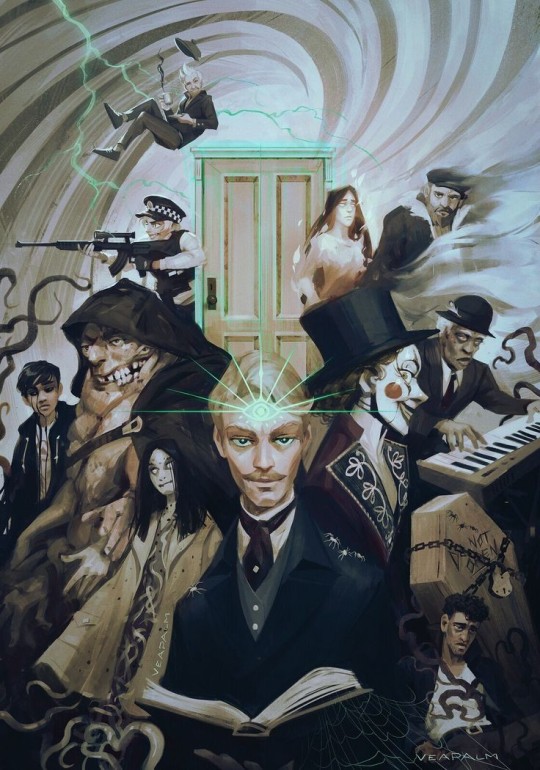#Magnusarchives
Text

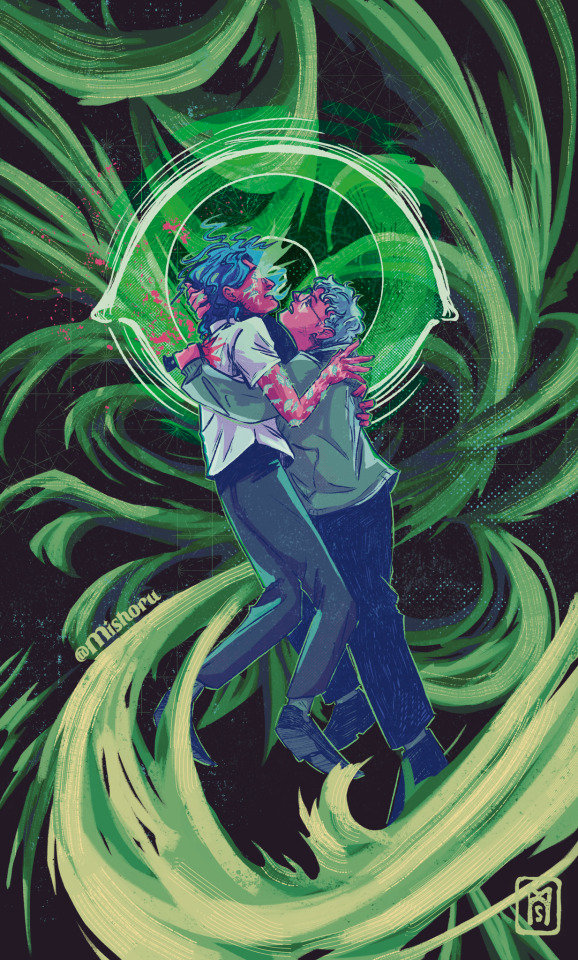
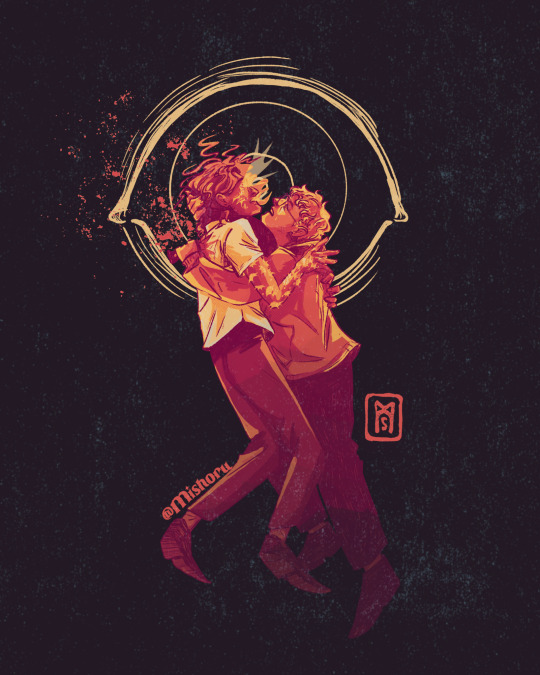
One way or another. Together.
#Hello Tumblr#I have returned and am carrying presents to excuse my absence. Please accept this immensely sad Magnus Archives fanart#sorry for disappearing#I have a full time job now and I forgot other social media than insta exists#I have drawn other stuff in the meantime lmk if I should post it on here too#illustration#art#procreate#fanart#Magnusarchives#the magnus archive fanart#the magnus archives#magnus archives#jon sims#martin blackwood#the ceaseless watcher#jonmartin
3K notes
·
View notes
Text
TMA time travel AU but -
Jon comes back as a child and gets adopted by elias (keeping enemies closer)
they try to stop each other’s plan but end up distracted and forming some weird kind of family (jon gets to grow up with more people around him,, and elias / jonah’s biggest fear becomes losing jon to enemies ASLKDLSJF)


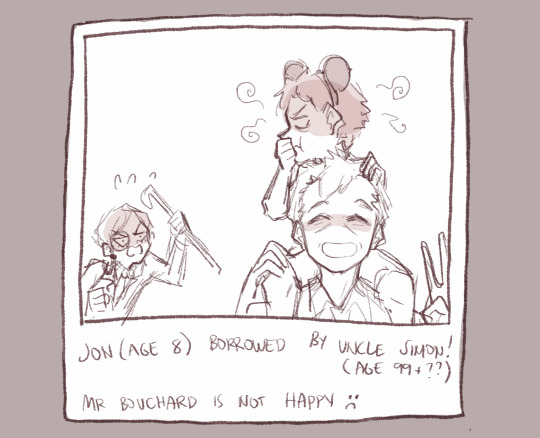








i know it’s a bit delusional but i have read three 100k+ word fanfics on this idea and they are all super angsty and unfinished im fucking dyinggggg i just had to let this out because i am Not Okay
More art of this AU here
#the magnus archives#tma#magpod#magnusarchives#jonathan sims#jon sims#elias bouchard#tma2#peter lukas#agnes montague#gerard keay#gertrude robinson#michael shelley#mike crew#simon fairchild#tmakidjonau
7K notes
·
View notes
Text

This is a canon conversation Jonny told me himself
#Elias is peters babygirl and everybody knows it#elias bouchard#tma elias#tma martin#martin blackwood#martin k blackwood#tma#tma shitpost#the magnus archives#magnusarchives#magnus archives#magnus pod#tma4#tma fanart#the magnus archives fanart#tma memes#lonelyeyes
2K notes
·
View notes
Text
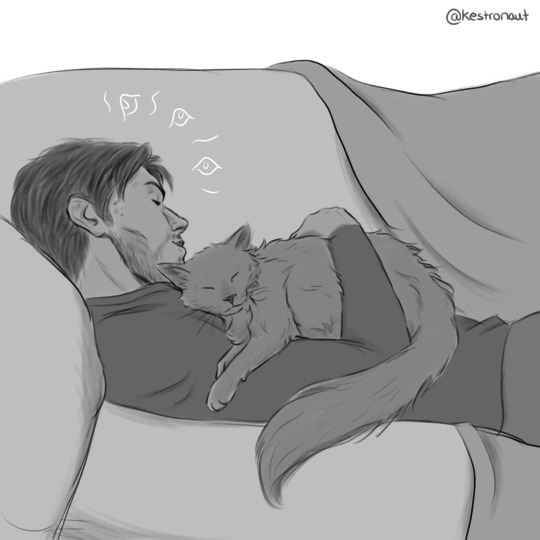
Another soft Jon and Admiral sketch 😺
2K notes
·
View notes
Text
MAG146: Threshold. An Excruciatingly Deep Analysis. Word Count: 6702 .
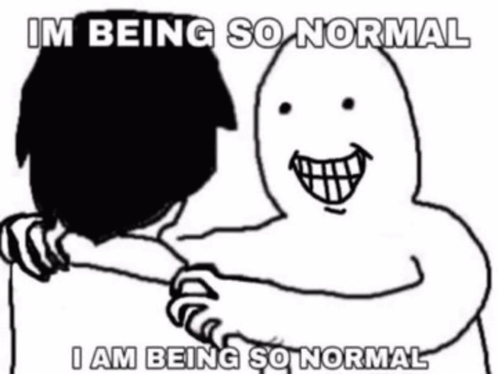
The Final scene in mag146 is something i think about often. It wasn't a scene of the three assistants confronting Jon at Martin's behest, it was a scene of desperation for a tangible target that couldn't overpower them the way every other monster had, that could be loosely quantified as deserving every ugly emotion they've had to direct inwards. I think a large part of season four as a whole, is the lack of a "big bad guy" and how the absence of one big pure evil enemy can actually. make things worse sometimes. because back when Elias was present everyone had someone to blame. all their anger about their respective situations could be tied back to Elias and so everyone had common ground in their hatred for him, they had an outlet. Tim and Melanie both lashed out at almost everyone but in the end it was Elias Melanie tried to kill multiple times. It was Elias that Tim's rage always traced back to, and they he held as the true evil until his bitter end. Basira could blame Elias since he's the one who practically forced her into joining the institute to save Daisy. It made things easy. It was simple because it's so easy to direct all your hatred towards the person who's the obvious big bad antagonist. But as soon as Elias was not present anymore, none of them had that outlet anymore. That's a large part of the reason that Jon’s the one being scapegoated. He's the only one with no connection to them all. And the only one they can safely turn their rage towards. Basira and Daisy have a bond near unbreakable due to their history, Melanie and Basira went through the trauma of the Flesh attack together, Daisy and Melanie have the common thread of both being people attempting redemption despite it being what feels like their nature. And through this, they all have something connecting them all. With Jon, there's a lacking in that common thread. Especially since it was Tim who saved everyone from the unknowing. Plus, what makes Jon easy, is the fact that they can trace even just the littlest something involved with him. The point is, when Elias was there, everyone had something they could tie reeeally directly to their issues. But now thats he’s not. Jons the next closest thing. And many aspects about who he is as a person makes it ever so easier to put blame on him. Not only is he non confrontational and self blaming, so he doesn't have it in him to be a danger to anyone who may confront him. But, with the rapid deterioration of his mental state, he's been making bad decisions. He's been unintentionally hurting a few innocent people. And those two things combined are just enough to make him the perfect replacement outlet. Because god with everything they're going through they need something. Because, all in all, it's nobody's fault. And that is the hardest fact for anyone in their situation to accept. Because blame is easy. Blame is simple and blame lets you cast all your misfortunes onto one person without having to take painful responsibility for them. And right now? Fate is the one at fault. Everything is being subtly influenced by the web in a way that simply makes it so fate was the sole decider all along. The end was decided from the beginning. Nothing could have helped that fact. Everybody wound up in their positions because fate deemed them unlucky souls and no matter what they hoped or dreamed or wished to do there was nothing that could have been done because every single one of them was just a plaything for destiny to reel at. And that is the absolute most excruciating thing to accept in their circumstance. Because none of them can handle what they've gone through. And to accept that there's absolutely nothing that ever could have been done about it is. Devastating. Because why should Jon have been born to suffer, why should Melanie have had to live a life built off a burning stick tower of shaky rage, why should Daisy have had to live the life of a desperate predator that she can barely redeem herself for, why should Basira have to dedicate her life to something that-
has only ever backfired on her, and went through so much trauma because of. Every single one of them is at the absolute worst possible spot they could be at for one reason or another (except possibly Daisy), so what other option do they have besides creating blame when the alternative is accepting it was hopeless all along. They're all desperate. Now, to further explain my next point i'm going to bring in some historical context for the term "scapegoat. Based in the Bible, a scapegoat is one of two baby goats; the other is sacrificed, while the other is sent into the desert, carrying all of the sins and impurities with it. The idea is initially mentioned in the Book of Leviticus, where a goat is assigned to be sent into the desert in order to carry away the sins of the community. Historically, this can be seen in many concepts. All of which are corrupt, and yet simultaneously used as one massive coping mechanism for the ways things are. The term though, interestingly (and ironically seeing a trend in historical scapegoats) enough, is rooted in ancient Judaism. Once a year, during Yom Kippur, Cohen Gadol sacrificed a bull as a sin offering to atone for all the sins he had inadvertently committed during the year. Then he took two goats and brought them to the door of the tent. Two goats were chosen by lot: one offered as a blood sacrifice, and the other as a scapegoat to be sent into the desert and pushed down a steep chasm where he died. The blood of the slain goat was taken behind the curtain into the Holy of Holies and sprinkled on the closing plate, the lid of the ark of the covenant. Later, the high priest confessed the intentional sins of the Israelites to God and figuratively placed them on the head of another goat, the scapegoat Azazel, who would symbolically "take them away". Now this is a very important analysis of a "scapegoat" because of how it narratively fits into the magnus archives you'll notice, that in the more ancient torah based description, it's abundantly clear that rather than simply an instrument for atonement, the goat is a sacrifice. The sins of the world were all placed on a rather innocent creature, and due to this, it met its untimely demise for reasons none other than fate. I like this specification, because I think it shows a really important context for the situation Jon is is. He isn't just being blamed for other people's problems, he's being utterly destroyed by them. Jons mental deterioration throughout the season has been nothing but noticeable in every way possible. And really? It's mostly due to that. He has an i n s a n e amount of survivors guilt at this point as pointed out by Daisy in Scrutiny, "And of course, for John, there’s survivor’s guilt in there, too. He thinks he’s not human. Makes him very… self-destructive.". So to have such an immense amount of guilt, and then have all the people around you, who you strive to have some sort of trust with, place all this blame on you, is detrimental. Not only is it a punishment perfectly tailored to match what Jons weakest point is, but it's also one that puts him in a cycle of agony that makes the entire situation worse. A sacrifice. It sends him into a vicious cycle of [ deteriorating due to being blamed -> not being able to sustain the pressure and agony of it and needing more statements -> taking more statements -> scapegoated for taking statements -> deteriorating due to being blamed ]. He's caught between a rock and a hard place with the situation because the ways the assistants are coping with their situation is directly contributing to exactly what they get on him for. They see him as a monster for doing what he does, and continue to deliberately try and make him feel worse, which only makes him need to do more of what they hate him for and no on and so forth. It's a vicious cycle full of unhealthy coping that none of them know how to withstand.
So, now that we have down the motives for scapegoating Jon and where Jon stands in the situation and what narrative role he's playing, we can now move on to the scene itself and the fundamentals of each character's stance in it.
Coping: and how it interferes with regression of development.
Firstly, I'm going to be starting with Daisy and there's a chance it's because she's my favorite and there's a chance it's because her stance is the most interesting. I lied, it's because she's my favorite! But either way, Daisy in this scene is the most conflicted character, and for extremely good reason. You'll notice that in her speech, she's almost desperately trying not to take sides, because she's the most aware of all the characters. She's undergone the most development and because of it is able to understand perspectives to a point where taking one is just something that's too difficult for her. After escaping the grasp of the Hunt, she's dedicated herself to atonement. Daisy has done terrible, inexcusable things in the past in order to feed the hunt. And since escaping it has done every single thing in her power to make up for it, no matter how hard. But the thing is. She's just as affected as all of them. And that's what makes her actions in this scene so interesting to look at. Because she can. not. blame Jon. She was Jon not too long ago she sees herself in him to a point where its painful. Because she too was caught in a place where she had to do things she knew were wrong simply to satisfy the desire of the hunt. She knows just how hard it is she knows the agony that Jon’s having to go through so she can't stand to see Basira and Melanie acting like he has full control. And yet at the same time, she can't bring herself to go against Basira. Because just as much as she knows where Jon is, she was on the police force with Basira. And cant help but see the justice side of the argument. She can't help but see how her circumstances differ from Ions in a way that Basira points out. So as much as she can see herself in where Jon is, she's incapable of not also being able to understand the points being made by the rest and where they are coming from due to how she knows that the logic for herself cant be applied to Jon. Since Jon knows what he's doing and she didn't. Since Jon hasn't been able to resist but she has. And a part about that fact is that it's Basira making it. She also still has a loyalty to Basira that makes it. Very, very difficult to fully go against her. So she becomes caught in a place where taking full, distinct sides, becomes a difficult endeavor. In the interaction, she's never the one making the points against Jon, but she's also not the one ever advocating for him. She makes a single comment about how Jons situation was similar to hers to try and reason was Basira slightly, but shut up about it after a few vague comments once she saw how driven Basira was in her convictions. BASIRA - You’re a danger, John. A monster. You’re hurting innocent people. ARCHIVIST - So did Daisy. BASIRA - Shut up. It’s not the same thing at all. DAISY - Basira. He has a point. BASIRA - You didn’t know what you were doing. [DAISY MAKES A PAINED SOUND, AS IF TO CONTRADICT HER, BUT STOPS.]. In this interaction especially, you can see just how tied she is between her understanding of both sides. She knows what Jons going through, but she also knows the differences in their circumstances, and it's not something she has solid ground to argue for. Now, bringing the regression topic in, I'll talk about how playing into this coping regresses her development as a character. Daisys current arc, and the one she's been having, is about fighting against her own monster hood. It's about resisting herself. About recognizing what she's done and atonement for it. It's about trying rather than succeeding. It's about fighting against your nature for what you know is right. So when upon seeing someone whos in as pained and monstrous a condition as she was, she cant bring-
herself to fight for them due to inconsistencies with what she believes, she regresses back to the person she was. The one who let their own morals get in the way of what was right. The one who allowed people to get hurt simply because it was "for the greater good." The way that regression is highlighted for her in this scene is how a blinding sense of morals and justice becomes too bright for her to act on the right thing. Even when staring at a pitiful version of the person she used to be. Character regression here works in the way where when tasked with empathy and understanding, she instead prioritized her own personal way of seeing things.
Second, and much more simple of a spectacle to observe: Ms Melanie King. Melanie is a lot simpler to talk about, and mostly since her motives and ways of thinking are very direct and straightforward. Melanie is a character plagued by anger. She drew an unlucky hand in life, and the only way she was able to rise up to become a person she could be proud of was through fighting her way there tooth and nail, scratching and kicking and biting. So when everything comes crashing down on her. When everything she fought with her life for is suddenly destroyed, she can not blame herself. Because if she admits to herself that it was simply fate's fault that her career collapsed and that it was her fault that she joined the institute in the first place, then it means that everything will have been for nothing. And that her absolute rock bottom in life was all and only because of her. That. is NOT something she can face. And the rage that was once used to build her up in life, is redirected towards the ones who she sees fit to blame. First it was Elias. He hired her, he's the one commanding under the name of the eye, he's the one whose fault it is, and he's the one who she's going to take her rage out on. And so she did. And then Elias was gone. And her rage was taken over by the slaughter. In the time Jon was in a coma her anger festered, it grew, it empowered her and became more a part of her than ever. So once Jon was back, she had an outlet again. And boy did it make it ever so easy for her, though all through good intentioned. Jons surprise little surgery to help release her from the slaughter, the fact that it was her statement she made to him that got her involved with the institute at first, the fact that he's becoming less and less human. So many things about what Jon was doing and had done made it horrifyingly easy for her to place her rage on him. And so, all her anger was redirected towards the archivist that ruined her life. I think at this point it's also worth mentioning Melanie's pride and how it plays into her as a character. She's undergone a l o t of character change. But aside from her frustration the one thing that's stayed stagnant about her as a person is her pride. She took great pride in where she managed to get herself in life back when Ghost Hunt UK was up and her life was at its peak. It was her pride and joy and it's what boosted her ego so high because it's something she did for herself with her own bare hands. So when that collapsed, one of the massive reasons that she needed to blame someone so bad was due to the fact that if she admitted that it was her fault, then all that pride would have collapsed with the rest of her life. Navigating blame away from herself and avoiding acceptance is her way of preserving her ego, which is the only thing she really has left after all she's undergone. And due to this ego, it's also what makes her the most stubborn and fierce during this scene. And so, so willing to go against Jon at any and all costs. But tracing back to this pride of hers, I think it's an aspect that's actually quite a lot during the intervention. The moment Jon refers to her as being a character in an explanation of his she immediately assumes he's trying to blame her for it all. [ ARCHIVIST - The second was… it was after I got stabbed by Melanie. MELANIE - You are not putting this on me ]. She does this again, but this time when Jons agrees with her, this being a blow to her ego that someone like him could even think to agree with an idea of hers. [ ARCHIVIST - She does have a point. MELANIE - I did NOT ask you.] So now that motives and reasoning are out of the way, it's time to explain how regression is doing its work on Melanie here. Melanie's key point in her development as a character is. actually almost hilariously obvious to a point where she's actually seen as reasonable for a split second of her life. She got therapy.
An honestly hilariously smart solution to the arising problems but. It was impressive for Melanie. Because her getting help after never once leaning on anyone around her was a massive step for her. It was a release of her pride, a recognition of her needing help from someone, of realizing she wasn't ok, and going out and getting it. Which god is more than can be said for most characters but essentially what therapy meant for her character development, was that she was finally taking a step to acknowledge her irrational anger and work to fix it. What happened in this scene for her, was a messy entanglement with the automatic unleashing of anger that she's always been so accustomed to, and the fact that she just took a massive step to stop that habit of hers. Regression is present here in the way that here, it's that automatic unleashment that ends up dominating, and becomes what overtakes her in this scene. The person she's been trying too hard to become fades away, and she moves back into the bitter, angry, spiteful person she was at the beginning of season four, still infected with the slaughter.
Basira is. undoubtedly the most complicated one. Daisys motives are the most contradicting, but Basira is the most dominant figure in what's happening, making her actions the most intense, and controversial. Basira is. complicated. She's extremely justice oriented and will do just about anything if it's for the wellbeing of the innocent and good of the world. She doesn't have the same "maul and kill the bad protect the good '' philosophy as Daisy, and is much less violent, but nonetheless lets her judgment of if people are good or not define her actions. And this goes for just about everything she has an opinion on, even changing what she thinks drastically if someone's morals shift. The only exception to this rule is Daisy, who seems to always have some affection towards whether what she's doing is good or not. The only time she's ever intervened with Daisy's immoral behavior is when she was going to kill Jon, who was someone Basira saw as moral. This type of mindset of hers got to the point where she completely turned on the police force the moment she recognized it as corrupt without even a second thought or dilemna about what she had sacrificed years upon years of work for. Unlike Daisy, who's developed to be able to see in shades of gray, Basira is still stuck at a point of black and white thinking. Deeming people as either "good" or a "monster." However over time, what went from just a mindset, became an utter and absolute crutch for her. She kept having to save herself from more and more situations. Rayners incident where she had to save herself from the chaos of the situation to when she had to rely entirely on her own head and wits to survive the unknowing, Basira slowly yet surely gets to a point where she can only trust to rely on herself, and her logic. After being through hell and back in Section 31 and then the institute she longs for stability, and gets this by having a rock solid state of mind that develops into the one and only thing she can depend on This gets especially reinforced in season four, when she's forced to take a leadership position. After the unknowing, her one, true last anchor besides herself disappears. Daisy was the one thing she could always count on, the one thing that was always there as an undeniable constant no matter what. But after Daisy was gone, she was left truly alone. So with Jon gone, Elias in prisoned, Martin out on his own agenda, and everyone else besides Melanie dead, she's forced to take leadership of the operation that is the archives. This in itself makes her extremely self sufficient. Becoming more and more self reliant and she increasingly loses anchors. This is likely around the time that she started really looking up to Gertrude, someone who all by herself did an unbelievable amount of justice for the world no matter what it took, or who had to be sacrificed to do it. Gertrudes self sufficiency, her effort, her efficiency, her image, everything Gertrude was, Basira strived to be. She's entirely independent, researching her own things and going all around the country without telling anyone about what she's doing. Leading all the operations such as the stopping of the dark ritual and now, going to investigate hilltop roads. She's undeniably retreated into herself, and no longer is used to being anything but autonomous. Because relying on herself for everything is how she copes. She turns herself into a pillar of stability which she must never leave, terrified that she would otherwise collapse. However despite seeming logical, she also greatly uses Jon as just as much of a scapegoat as Melanie, albeit more subconsciously. The problem that arises with Basira a bit more, is bias. Bias towards what's helpful to her personally, bias towards stability, and a strong bias against things that both destable her, and don't fit her view of justice.
I'm going to have to try and word this simply because Basira is a little complicated, but essentially, her black and white view of the world mixes with her biases very badly. Being either extremely tolerant, or extremely intolerant. Due to her self sufficient development, she has automatic favor towards anyones who's useful to her. Aka: Melanie. During the flesh attack, Melanie saved her life. Melanie got Helen as an ally. Melanie helped her research and upkeep of the archives when nobody else was around. And otherwise, has stayed out of her way. Due to Melanie having been useful to her, she sees Melanie as a person on her "good" list. And is willing to excuse Melanie's emotional outbursts, and justifies them. She also has automatic favor towards people who provide her stability: Daisy. Daisy has had her back for likely at least a decade. She's always worked together with her, always helped her, always provided a sense of stability for her to rely on, and was a powerful unstoppable force that Basira found comfort in depending on. Daisy was also someone Basira became extremely trauma bound with, enforcing the fact that Daisy would constantly be relied upon. Because of this, Basira looked past her immoral behavior on the police force. Daisy also earned a spot on her "good" list. However, Jon has ever provided for her in a way where she can have this favor towards him, and if anything goes against the exact things that she values Melanie and Daisy for. Unlike Melanie, Jon has never helped her or been of use to her. He's never saved her, never gotten her in the nick of time, never assisted her in something great, and overall has really never been a person that has been of good use to her. Unlike Basira, he's extremely unreliable. He's messy, jumps into action without thinking, he's self sacrificial in the stupid way, always gets himself into danger, is sloppy with plans, puts himself and others in danger, and is the last person you can rely on as a sturdy boulder. So not only does Jon not possess the qualities she tends to favor people over, but similarly to Melanie she associates him with being put in danger due to him being unhelpful at some of the most dangerous places shes ever found herself in, including the unknowing, the stopping of the "dark ritual". And most other scenarios where she's been put in danger, and needs someone to assist her. That being said, this means that she's not willing to look past anything he does due to lacking in the favor that people like Melanie and Daisy have. This especially works in the opposite of Jons favor when the things that he happens to be making mistakes on, is exactly what Basira values. Justice of the innocent. So when you combine ALL these factors.
Combine her need to be bold, black and white, stubborn and unmoving at all costs [ BASIRA - How many. ARCHIVIST - Basira…BASIRA - How. many. ] [ BASIRA Enough. ]. [ BASIRA -Then we go. Now. Unless, anyone has any objections. ]
With her newfound need to be independent, autonomous, self sufficient, self reliant at all costs [ BASIRA - No. if he is being controlled, we need to know. And we need to know now. Tell me where she is. ] [ BASIRA - Fine, I’ll go, then. I’ll do some recon on my own, and update you. ]
And finally, her biases towards those she favors mixing with her strong sense of justice [ BASIRA - Why do you think? Because he was ashamed. ] [ BASIRA - You’re a danger, John. A monster. You’re hurting innocent people. ARCHIVIST - So did Daisy. BASIRA - SHUT UP. It’s not the same thing at all. DAISY - Basira. He has a point. You didn’t know what you were doing. BASIRA -And since you did, you’ve spent every waking hour resisting. He knows exactly what he’s doing. ] [BASIRA- You don’t get a vote. ]
Now that I've discussed the individual characters and their stances and motives, I want to give my personal review of this scene and it's mostly just. My goodness. Jonathan Sims is scarily good at writing characters. I feel like a lot of writers often don’t go into the messy details of what trauma does to you as a person. A lot of the time characters will go into scarring events and come out only slightly affected. But what's really done so, so well, is the realism put into the coping styles and reactions of each character. They don't react to their trauma in pretty, romanticized ways. Melanie especially depicts this. She has rage outbursts that have ruined her almost all her relationships, she becomes violent out of fear, she reacts irrationally due to defense mechanisms, shes messy and shes vengeful and shes angry and the ways in which she acts in order to protect herself whether its stabbing Jon and other violent outbursts, or a general inability to communicate without thinking the other person has bold intentions to hurt her. She screams at Jon, blames him for all her problems despite him being responsible for dead zero of them, and turns fearful and livid at the sight of him. She's traumatized and it's not depicted in a way that's supposed to get the point across while still preserving love for the character. They aren't afraid to make characters genuinely unlikeable for the sake of realism and it's represented s o well. And she isn't the only character who does this when faced with trauma. Tim becomes bitter towards everyone around him and vents his rage on anyone who comes too close. Martin becomes hateful, spiteful, and self isolating. Basira takes complete domination in order to be in control of situations, and becomes accusatory, cold, selfish, unfair. I could go on and on but there isn't a single characters whose reactions art brutally honest to what anyone would say or do. they are unpleasant and messy and excruciating but they're human, they are unapologetically human. heres a perspective that wasn't so easy to see coming, but it actually fairly crucial to this entire scene and what exactly it means. Martin. Martin was the one took the tape of the bystanders interaction with jon, and left it out for the others to see. A silent instruction to intervene. Which. Dear god shows a lot about who he is as a character and just why the lonely is benefitting so much from him. Martin cares about Jon. It's undeniable. Daisy and Basira and Jon and Martin have always worked quite well as foils because as Daisy is Basira source of stability despite Daisy being rather uninvolved, Jon is Martins source of stability, despite Martin purposefully not involving himself. We already know that one of the main reasons Martin is working with Lukas in the first place, was a promise that doing what he's doing is protecting Jon. Everything from his self isolation to his purposeful self sabotage with his peers to every ounce of work he's doing..is really just all for Jon and the promise of his safety. However, despite his care he refuses to get involved. He digs himself in such a deep self sabotage hole that he refuses to even try and do what Jon really needs from him due to being so deep into what he's doing that he can't really turn back. He's so incredibly focused in on his own agenda, that he ends up endangering what he says he values. He's so uninvolved with the happening of things that he sent a tape containing an example of jon acting “evilly”, to the exact people that push him to do so and without considering the danger that may put him in with his coworkers.Martins perspective on this isn't really something you can tell? So it's hard to guess if i did that knowing what would happen and thinking that would be for the best, or did it thinking things would end differently, not realizing what he was doing. is really just all for Jon and the promise of his safety. However, despite his care he refuses to get involved.
He digs himself in such a deep self sabotage hole that he refuses to even try and do what Jon really needs from him due to being so deep into what he's doing that he can't really turn back. He's so incredibly focused in on his own agenda, that he ends up endangering what he says he values. He's so uninvolved with the happening of things that he sent a tape containing an example of Jon acting “evilly”, to the exact people that push him to do so and without considering the danger that may put him in with his coworkers. Martin's perspective on this isn't really something you can tell? So it's hard to guess if i did that knowing what would happen and thinking that would be for the best, or did it thinking things would end differently, not realizing what he was doing. Either way, it's very interesting to see just how dedicated Martin is to Peter Lukas’s plans to a point where even the main motivation to what he's doing in the first place becomes something he avoids at every single cost he can, even when attempting to better things. Of course there's a lot about Martin I could talk about, but it wouldn't be relevant to this episode. Instead it's just interesting to focus on the action Martin takes, the inaction he takes, and just why he does these things.
Martins. certainly an interesting one right now. I keep trying to decipher his motives by leaving the tape out but it's honestly near impossible to fully know what he was counting on happening or not.
Now when you think about this scene in the context of psychologist "Leon Festinger's" cognitive dissonance, it gets even more interesting. For starting context, cognitive dissonance is when ones belief differs from physical evidence at hand. You may have heard of musical dissonance, when two notes in different keys are played in a rather jarring timeframe, made to make the listeners uncomfortable or shudder. Cognitive Dissonance is just this. When someone's belief doesn't line up with the evidence at hand, it creates a jarring discomfort quite similar. An example used by Festinger (1957) may assist in elucidating the theory. A habitual smoker who learns that smoking is bad for health will experience dissonance because the knowledge that smoking is bad for health is dissonant with the cognition that he continues to smoke. He can reduce the dissonance by changing his behavior, that is, he could stop smoking, which would be consonant with the cognition that smoking is bad for health. Alternatively, the smoker could reduce dissonance by changing his cognition about the effect of smoking on health and believe that smoking does not have a harmful effect on health (eliminating the dissonant cognition). He might look for positive effects of smoking and believe that smoking reduces tension and keeps him from gaining weight (adding consonant cognitions). Or he might believe that the risk to health from smoking is negligible compared with the danger of automobile accidents (reducing the importance of the dissonant cognition). In addition, he might consider the enjoyment he gets from smoking to be a very important part of his life (increasing the importance of consonant cognitions). Cognitive dissonance is seen here, particularly in Basira, very starkly. Basira and Melanie believe Jon is a monster. An inhuman thing that's instinct is to only harm others. She views him as this broken twisted thing that needs to be handled and managed so he doesn't destroy the people around him. However, at the same time she's still wholly devoted to Daisy. She holds no blame towards her, and excuses her every action due to her repressed feelings for her and the loyalty she feels towards her, despite Daisy having done far, far worse than Jon. but despite the hypocrisy, they make her feel safe. They give her stability. Because this way, she has a clear opposing force (Jon), and a clear allied force (Daisy and Melanie) and having that gives her the groundedness she longs for. However, cognitive dissonance comes into play. very quickly with this. For example: the evidence of Jon trying to be better. The fact that Jon does everything in his power to help others, the fact that Jon continuously resists using his power if he can't help it, the fact that Jon has a kind heart, the fact that Jon has worked tirelessly for others, the fact that Jons intentions are never once bad.
Basira sees this. Basira sees every. Little bit of this. But she denies. She feels that uncomfortable dissonance between what she believes about Jon and about what's in front of her eyes. So in order to close this gap between belief and evidence, she makes excuses. She convinces herself that Jon is barely trying and that things would be fully better if he actually cared, she convinces herself that Jon is against her and is being manipulative, she convinces herself that he's deliberately doing what he is. All these beliefs that convinces herself of help close that uncomfortable gap between her belief and logic, making that dissonance go away. As Lauren Slater said in her book on Leons Psychology "Opening Skinner's Box": “dissonance is really not about looking at how people change. The theory just didn’t concern itself with that.” Which describes her feelings towards Jon, really quite well. Its doubt of progress. Doubt of character. Doubt of the human ability to change and grow and live. Someone else along with this happens with her relationship with Daisy.
Now for this part if we are to take a look at some more excerpts from Lauren Slater's "Opening Skinner's box:” "Did Festinger ever consider how our justifications are to save not only ourselves, but others too? Did he ever consider how lies and love are intertwined?” This part relates. Incredibly directly to Daisy. Basiras Justification of Daisy's past actions, every single time she says "It's not the same" when talked about Jon and Daisys inhumanness, it's out of pure love. She doesn't want to admit to herself that Daisy may be as in the wrong as she is, but she also doesn't want to admit it to Daisy. She cares about Daisy deeply and doesn't want her to have to face that pain of truly seeing what she's done. She lies to herself out of protection of Daisy, and out of preserving her morals. Because Basira wants to be a good person. She needs to be a good person she needs to stand for the name of justice as a totem, as a symbol. She can't do that if she stood by someone and let them murder countless people, and excuse it, and love that person deeply, and continue to. So she lies to herself. She tries to close the gap in dissonance by justifying Daisy's actions, because god she just needs to. Now, for how Melanie comes into this. It goes without saying that Melanie pretty much also can be directly applied to all of Basiras cognitive dissonance, except for some details. She experiences the same cognitive dissonance as Basira just in an angrier way, with different motives. And it's exactly this that makes the dissonance with Basira and Melanie worse.
“We spend our lives paying attention only to information that is consonant with our beliefs, we surround ourselves with people who will support our beliefs, and we ignore contradictory information that might cause us to question what we have built.” "Soothing can come only if more and more people sign onto the spaceship, so to speak, because if we are all flying this thing together, then surely we must be right.” Companionship. Because if someone believes the same thing as you you cant be crazy. If someone sees what you see then it affirms you, makes you feel like you must be right since you aren't the only one who thinks this. That's what happens with Basira and Melanie. They both experience with dissonance, and find companionship in it. They think. "Oh, well I'm not alone in this belief, so I doubt it's wrong." Their beliefs are affirmed, and they strengthen due to this. There's no room to doubt yourself when everyones telling you youre right. Another variable when it comes to companionship, is just how much both of them long for it. Melanie and Basira are in such lonesome, excruciating places in their lives. meaning that the companionship that comes with this common dissonance is strengthened simply by the fact that they both long for allies and for support. “The psychological opposition of irreconcilable ideas (cognitions) held simultaneously by one individual, created a motivating force that would lead, under proper conditions, to the adjustment of one’s belief to fit one’s behavior—instead of changing one’s behavior to fit one’s belief (the sequence conventionally assumed).”
#the magnus archives#magnus archives#jonathan sims#jon sims#themagnusarchives#magnusarchives#tma#magpod#basira hussain#daisy tonner#melanie king#martin blackwood#the magnus pod#elias bouchard
44 notes
·
View notes
Text
i go to the mag protocol tag looking for new character art, i leave the mag protocol tag having seen an absurd amount of content about two text-to-speech voices that are in love
#not complaining!!#magnus protocol#magpod#magnusarchives#tmapg#tma#the magnus archives#the magnus archives protocol
46 notes
·
View notes
Text
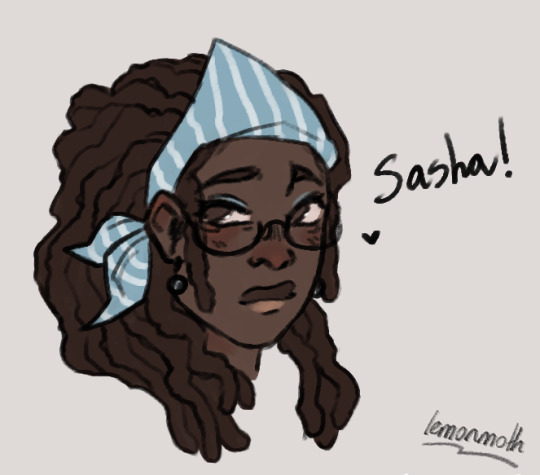
Also my Sasha design!! Heavily inspired by @time-woods version bc i love their artstyle sO MUCH. Go check them out, they also have amazing rtmnt fanart!!!!!
#tma fanart#tma#the magnus archives#magnusarchives#tma sasha#sasha james#the magnus archives fanart#jonathan sims#she's so fine#deserved so much better
120 notes
·
View notes
Text
Anyone else suspicious that the Manchester Magnus Insititute burnt to the ground in 1999 a year after Gertrude blew up the Serapeum in Alexandria?
79 notes
·
View notes
Text
magnus archives entity playlists because im obsessed and unoriginal

all of it on one playlist [206 songs]
buried [17 songs]
corruption + web [26 songs]
dark [10 songs]
desolation [10 songs]
extinction + end [21 songs]
eye [14 songs]
flesh [27 songs]
lonely [23 songs]
slaughter + hunt [23 songs]
spiral [32 songs]
stranger [17 songs]
vast [13 songs]
some songs on here are input from my friends so thanks to those guys :-) all the playlist covers are drawn by me
ig technically all these playlists are "unfinished" but tbh i don't think a playlist is ever really finished cause you could stumble upon a song that fits at any point so why limit that y'know — song counts are all just at the time of posting and i will not be updating them as i add songs lol
you should be able to view them even if you don't have apple music but idk, sorry about that
#tma podcast#magnus archives playlist#magnusarchives#themagnusarchives#tma#tma playlist#tma music#i have no idea how tags work on here this is so scary#apple music#fear entities#tma entities#my art
140 notes
·
View notes
Text
Needed a break from academic writing and decide to indulge in a little fic writing. It’s an incomplete Bit that goes to a larger story that is a follow up on A Zero Sum Game by @scatteredheroes.
Please mind the content warnings on the original fic and this snippet.
All at once, the façade cracked.
“Stop Tim! Just... stop it!” Martin’s voice was shrill as the sudden onslaught of grief and rage distorted his face. It seemed so foreign to the person Martin used to be, a despair painfully familiar to Tim, and it made his heart twist sharply at the realization that even the best of them had been driven to... this.
At the same time, Tim forced himself to believe this was a good sign. It’s the most emotion Martin had shown since... the day that he had stood outside the Archivist’s door, unable to bring tea to the creature that wore the face of a man he’d loved. Anger, bitterness, grief—all of it was better than that horrible emptiness that Martin had let into himself.
“Jon is dead, Tim,” Martin continued, face flushing with color that Tim hadn’t realized was absent. “And if you’re fine with... playing house with the thing wearing his corpse... then... then by all means, be my guest!”
“I don’t care what you need to do as part of this... this fucked up attempt at penance!” His volume had continued to rise in pitch, almost a scream. It should have echoed in the cavernous space of Martin’s (previously Elias’s) office, but the encroaching fog swallowed the sound, dampening it. “But leave me out of it.”
It was a clear dismissal. Martin’s stance was set, arms crossed as if in challenge. But that wasn’t about to work on Tim. Martin’s eyes were fixed on the carpet, fingers digging into his arms tightly in the mockery of a hug, clearly fighting to suppress tremors.
Rather than leaving, Tim stomped forward, around the fancy old desk that had, until now, been kept strategically between them. The damned fog pressed in denser than ever, and he could swear that Martin looked less... solid.
Well fuck that.
Martin’s eyes, still trained on the carpet beneath his feet, failed to notice Tim entering his space right up until Tim had grabbed the lapels of his new, too-fancy suit jacket. Martin startled hard, clearly not expecting Tim to call his bluff, let alone become physical. Although the larger of the two, and more than capable of pushing Tim off, Martin merely gaped at Tim, eyes flicking from the hands twisted dragging him close and Tim’s face.
“Now you listen to me, Martin Blackwood,” Tim growled. “I know I’ve been a massive arse over the past few months. I know that I’m a hypocrite and a coward. But I’m not delusional. So listen to me when I say this: Jon is alive in there somewhere, and if there’s any chance at getting him back, he needs you. Fuck, I need you.”
“Tim, I—” Martin tried to interrupt, two broad, soft hands coming up and taking hold of Tim’s wrists. Tim expected a struggle then, an attempt to shove him away, but instead of making an escape, Martin seemed unaware that he’d moved at all. In the moment that Tim glances down, he catches sight of it: a piece of paper tucked carefully into the inner pocket of Martin’s jacket. Tim stares at it like a man seeing the sun for the first time. Sure, it could be the budgets for next quarter or a shopping list, but Tim had a pretty solid guess that if he removed it, he would see Martin’s name written on the front, in a thin, familiar scrawl.
Tim’s attention is again brought to the hands wresting on his wrists, and the tremors running through them. It was almost enough to hide the soft, hiccupping sob that tore out of Martin’s chest. It’s such a small, heartbroken thing that Tim feels something twist in a soft spot he hadn’t realized still existed.
“What if he’s not? I can’t... I can’t do this again, Tim.”
“What if who’s not, Martin?”
The temperature in the room seems to plummet, and the color drained from Martin’s face as he looked away from Tim, behind him and a little to the left, where a figure had emerged from the fog. Tim had never had the displeasure of meeting Peter Lukas, not personally, but the only thought that comes to mind is how punchable the old sea captain looked. Especially considering the effect he’s had on Martin.
“Nothing, Peter. Tim and I were having an argument, and now he’s leaving,” Martin replied, trying to slip on the mask of annoyed indifference. His hands tightened on Tim’s wrists, prompting Tim to release his grip, more out of surprise than anything.
Martin dropped Tim’s wrists and leveled a glare at Peter. Without Martin’s physical touch, the fog swarmed in, thicker than ever, chilling his breath and filling his lungs. The sudden sensation of cold left him frozen to the spot, unable to reach out and recapture Martin, unable to anchor himself, and he knew it was only a matter of seconds before he was consumed entirely, before the mists hollowed him out from the outside in, leaving him a hollow bag of flesh and bone that would eventually wither away.
“Stop it, Peter.” Martin’s voice, still flat, cut through the fog. The pressure lifted, just a little bit, and Tim saw that Martin now stood between him and Lukas. The man smiled at them, but it was bereft of warmth. The sight alone sent a new round of shivers down his spine.
“Oh Martin,” Lukas sighed in a soft, sing-song voice as he stepped forward. He placed a heavy hand on Martin’s shoulder, and while Martin doesn’t flinch, Tim does. “You were making such great progress.”
Before either Martin or Tim had a chance to react, Lukas’s hand darted forward, snatching the folded paper that had been peeking from the hidden breast pocket of his jacket. Martin does respond then, a guttural, almost feral snarl as he reached for the letter, trying to snatch it back from Peter.
Peter looked at the letter with an air of disgust, holding it just out of reach, before he returned his attention to Martin, who had gone still, as if waiting to see what would happen next.
“I have half a mind to feed your friend there to the Lonely,” Lukas said, and in a succinct motion tore the folded paper in half. Martin let out a strangled sound as Lukas tore it again, then again, until all that remained confetti, but Martin made no move to stop him. Tim realized with a lurch that he was the reason for Martin’s acquiescence, rendering him unable to protest the blatant cruelty inflicted upon him.
When there was nothing left of Jon’s last letter to Martin, Peter Lukas dropped the shredded remains, allowing them to flutter towards the ground, where they were swallowed to the mist.
“There. Now let’s see about undoing the damage.”
Without warning, Martin moved. Honestly, Tim hadn’t realized Martin was capable of moving that fast, that silently. Maybe it was the aid of the Lonely, maybe it was the pure rage that filled his eyes--an emotion Tim had only seen in passing once or twice before.
There was no time to assess, really, because Martin was charging Peter, something glinting in his hands—and Christ, where had that knife come from?
Martin’s strike landed, Tim’s almost certain of that, because when Lukas spoke next, it’s ever so slightly strained.
“Really now, Martin,” came the chiding, condescending reply, only barely revealing a strain of pain beneath. Tim couldn’t hear what he said next, the words drowned out by the same fog that obscured both Martin and Lukas.
And then it was gone. All of it—the fog, Martin, Peter Lukas. There was only Tim, barely standing on shaking legs, staring at the spot where he’d watched them vanish.
All that remained was a pile of shredded papers, scattered across the carpet, and a few drops of fresh blood.
“Fuck.”
#the magnus archives#tma#magnusarchives#magnuspod#jonathan sims#jon sims#martin blackwood#timothy stoker#tim stoker#peter lukas#my writing#my fanfiction#tw death#tw suicide#tw blood
31 notes
·
View notes
Text



perks of having the distortion around: free transportation
more of this au here
#tma#the magnus archives#tmakidjonau#magnusarchives#magpod#jarchivist#jonathan sims#jon sims#elias bouchard#michael shelley#michael distortion#the distortion
4K notes
·
View notes
Text

Jonathan Sims head archivist of the magnus institute London
#tma#magnus archives#the magnus archives#magnuspod#magpod#tma podcast#jon sims#jonathan sims#magnusarchives#jarchivist#tma jon#I find this way too funny LMFAOOOOOO#The fact he’s an orphan and that’s the LEAST interesting part of his character always gets to me
369 notes
·
View notes
Text
Jon, why are you sleeping instead of petting me? 🐱
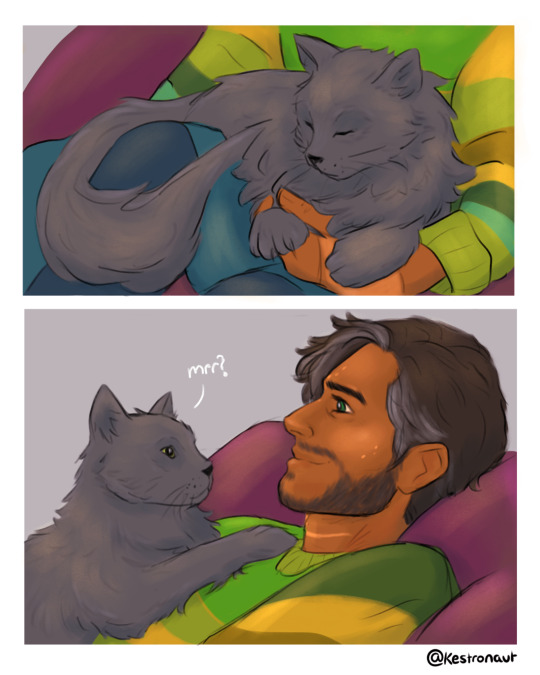
724 notes
·
View notes
Text
MAG155: The Cost of Living: Basira Hussian Perspective. Word Count: 1892
This episode was a massive turning point for Basira and I don't think many people are really able to acknowledge this due to the subtlety of it, but just like how Jon finally cracked in 154 with his confrontation with Martin, this is really Basiras cracking point as well. As I've talked about in extremity, and as we all know, Basira is deeply, deeply reliant on Daisy. After all the shit that's gone down in her life Daisy has been the one constant, the one thing that's always there for her to rely on. Not only did they go through extremely traumatizing events together when working as partners in Section 31, but with everything happening in the institute, they're practically bound together. Even the very first interaction we have with Daisy, there's an expression of her concern and care for her
[DAISY - [anxious, drawn] Don’t tell Basira. She doesn’t know about that procedure. I, I’m not sure how much she’d understand, she – she’s not – cut out for that kind of work.].
Time and time again we begin to realize just how deeply bound they are as people. As the series goes on, we see them go from work partners, to trauma-bound, to full on codependent to a point where neither of them see life worth living without the other one in it. To the point where Basira practically sacrificed her life for Daisy, joining the institute and signing the rest of her life away on a contract that would save Daisy's life. They're incredibly bonded, to the point where we really barely see them interact. This is because they're so close that they don't *need* to talk to each other a lot for their bond to hold strong. They're so incredibly close that interaction simply isn't needed, because their care for eachother prevails despite how much they're around each other or not. This expression comes to a climax in mag146 during everyone's intervention with Jon. Basira explodes at Jon, furious with him for hurting innocent people to save his own life. However, when it's brought up that Daisy has murdered people again and again for this same reason, using her status as police to get away with it, Basira ADAMENTLY defends her viciously, insisting that what Daisy did was different, despite it being much, much more severe than what Jon had done. This is because Basira idealizes Daisy more than she likes to admit and for several reasons. Basira is someone who thrives off stability, so with her entire life crumbling around her, Daisy is the stone pillar she can lean on, rely on, count on as someone who's always going to be the good in her life. So when this image of Daisy is threatened, Basira becomes enraged. I've talked about this before but this mentality is illustrated well by Leson Festinger's theory of cognitive dissonance. When a person's conviction does not align with physical evidence of reality, and so that person rewrites reality in order for that awkward gap to be closed. Basira needs Daisy to be a good person due to her devotion to Justice, and so even when it's proved to her that what Daisys done is extremely immoral, she makes excuses for her to eradicate the dissonance created between her belief and reality. This is especially because of Basiras massive dedication to justice, and her black and white good and evil way of thinking. And so, the events of 146 go down. (if you want more on this scene [https://docs.google.com/document/d/1aWHkkKeG9iDYXaesQ927NAvnHeczZnToT8y_NKBeLSU/edit?usp=sharing])
NOW let's take this in the context of mag155. The previous night after Jon was attacked by Julia and Trevor, he called Daisy for help, and this situation ended up exhausting her. We see just how incredibly weak Daisy has become, as we realize she can hardly take much physical work, is scarily thin, and is exhausted incredibly easily, getting her sick from the temptation of the hunt. This puts her out of commission for a little, and we are really truly hit with the reality of what her resisting the hunt has done to her. Painful, and intense withdrawal with no escape. Then, in 155, when Jon asks Basira about Daisy, we get the following interaction. Let's go through it, starting with the words exchanged.
[BASIRA - I’m trying to convince her to go after them. To, uh… Hunt them. ARCHIVIST - Why? BASIRA - Because I’m not going to lose her. ARCHIVIST - She goes hunting again, you might anyway. BASIRA - And if she doesn’t, she might die. ARCHIVIST - Something you’re fine with in certain other cases, and something she’s made peace with. BASIRA - Because of the guilt she feels over the stuff the Hunt made her do. It’s not her fault.]
Now. my fucking god lets go over this. This is really the scene where everything that happened in 146 and everything that's been happening, Basira really admits to. And what's truly revealed is just how dependent she is on Daisy. Seeing Daisy so weak, Basira is more dreadful than she could ever imagine, because aside from just seeing Daisy as a pillar, she also loves her. She cares about her. Hell she's everything to her even if that fact is extremely repressed. To the point where when she sees Daisy in such a state she is trying to convince her to kill people again. Basira the woman who quit the police force due to the corruption in it, Basira who judges people in black and white based on how just they are, Basira who exploded on Jon when he temporarily hurt four innocent people for his own survival, pleads with Daisy to go back to her own ways. Desperately tries to convince her to give into the hunt just once in order to feel better. Basira cares about Daisy so much that she's willing to set aside every moral she's ever had every thought of justice simply so that she doesn't have to lose Daisy, because she doesn't know what she would ever do without her. [BASIRA - Because I’m not going to lose her. ]
Because she doesn't want to lose her. Because she cant lose her. And so she betrays everything she bases her own self on just to try and protect her, finally admitting how much she relies on her even if it's just through a few vague words. Even after this, when Jon snaps at her for her own hypocrisy, calling Basira out for excusing Daisy but not him for hurting people far less for the same reason.
[ARCHIVIST - Something you’re fine with in certain other cases, and something she’s made peace with.]
Her own hypocrisy staring her right in the face, she still denies, and still does everything in her power to eradicate that dissonance. She makes vague excuses for her, "it's not her fault", "she didn't know what she was doing", "it's different i swear it's different". Then Jon lays down the lines that really just end up cracking her.
[ARCHIVIST - Earlier, when she was still out of it, I… I saw some of the things she was talking about, some of the things she did while she was police. Do you want me to tell you? BASIRA - No. No I don’t. ARCHIVIST - you knew, didn’t you? You knew the sort of things she did, and you let her. BASIRA - No. Not exactly. I thought… It’s not that simple.]
Jon hits her right in the chest with the "I know what she's done. Do you want me to tell you in all the detail I know will crack your vision of her? But that's when we realize. He doesn't need to. It's not that Basira was slightly in the dark about the full extent of what Daisy did and so she filled in the gaps of her knowledge with excuses. It's not as if she only tried to justify what Daisy did due to not having the full picture. Basira knew every fucking thing. Every last detail and yet still excused her actions. She knew every disgusting truth and still clung onto her love for Daisy, and justified it. "Did Festinger ever consider how our justifications are to save not only ourselves, but others too? Did he ever consider how lies and love are intertwined?” Basira isn't just lying for herself, she's lying to protect Daisy. Her lies about reality mix and tangle and knot with her love for Daisy, twisting and warping the two things into one ugly truth mixed with devotion and heartache. Without realizing it, without saying it directly, without even wanting to, Basira reveals everything about her mindset in this scene because it's when she finally becomes desperate. Just like how Jons desperation (rant coming soon :) ) in mag154 is what finally characterized his motives, Basira has been driven to a point of desperation that reveals her motives in full daylight without her even realizing it. Because at the core of it all: is Daisy. The person she truly lives for and the one that she is willing to do whatever it takes to protect because she's dependent on her to a point of no return, a deep, painfully repressed love driving her every action. Even in the last few words exchanged between the two here, we see how Basira bases her every action based off Daisy.
[ ARCHIVIST - Have you thought any more about what I said? BASIRA - Yeah, I don’t think I can. Daisy wouldn’t come if I didn’t, and I’m not leaving her behind. Besides, both of us being blind would be… anyway, being stuck here isn’t exactly her main problem right now. ]
"What i said" was referring to what Jon figured out to be the one way of leaving the institute. (Gouging one's own eyes out). And through hearing that, through Basira realizing the position that's ruined her life, through the job that she was manipulated into joining with Daisy's life on the line, Basira still refuses. Because of Daisy. Her one and only chance of escape is denied because she wants to be able to take care of Daisy. And because she doesn't know if Daisy would follow her. And where Daisy goes, she goes. Which is not going to be a reference to a heartbreaking line later in the series because Daisy and Basira are not parallels to Martin and Jon.
because Daisy and Basira are not parallels to Martin and Jon because Daisy and Basira are not parallels to Martin and Jon because Daisy and Basira are not parallels to Martin and Jon because Daisy and Basira are not parallels to Martin and Jon because Daisy and Basira are not parallels to Martin and Jon because Daisy and Basira are not parallels to Martin and Jon because Daisy and Basira are not parallels to Martin and Jon because Daisy and Basira are not parallels to Martin and Jon because Daisy and Basira are not parallels to Martin and Jon because Daisy and Basira are not parallels to Martin and Jon because Daisy and Basira are not parallels to Martin and Jon because Daisy and Basira are not parallels to Martin and Jon because Daisy and Basira are not parallels to Martin and Jon because Daisy and Basira are not parallels to Martin and Jon because Daisy and Basira are not parallels to Martin and Jo-
#the magnus archives#jon sims#jonathan sims#magnus archives#magpod#the magnus pod#basira hussain#daisy tonner#martin blackwood#tim stoker#elias bouchard#cognitive dissonance#magnusarchives#tma#tma podcast
32 notes
·
View notes
Text
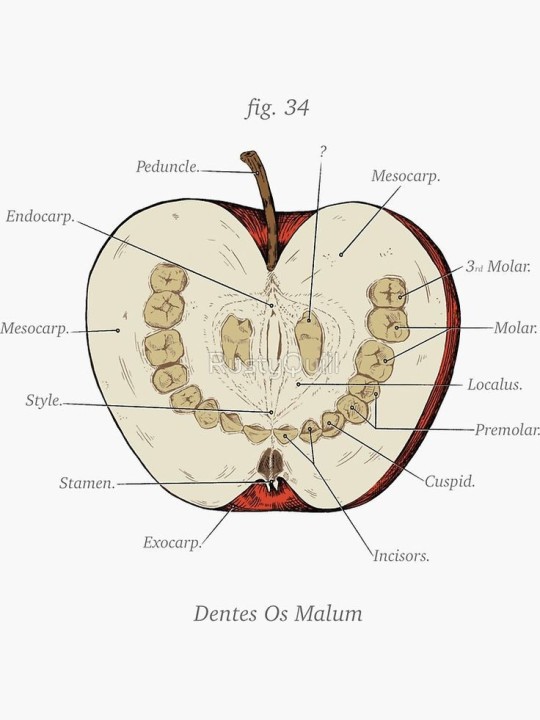
11 notes
·
View notes
